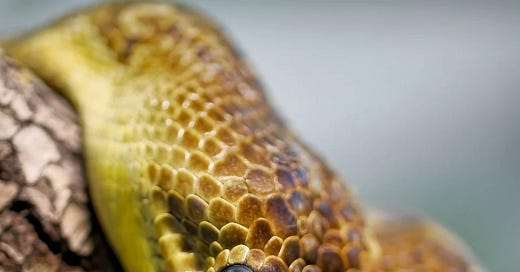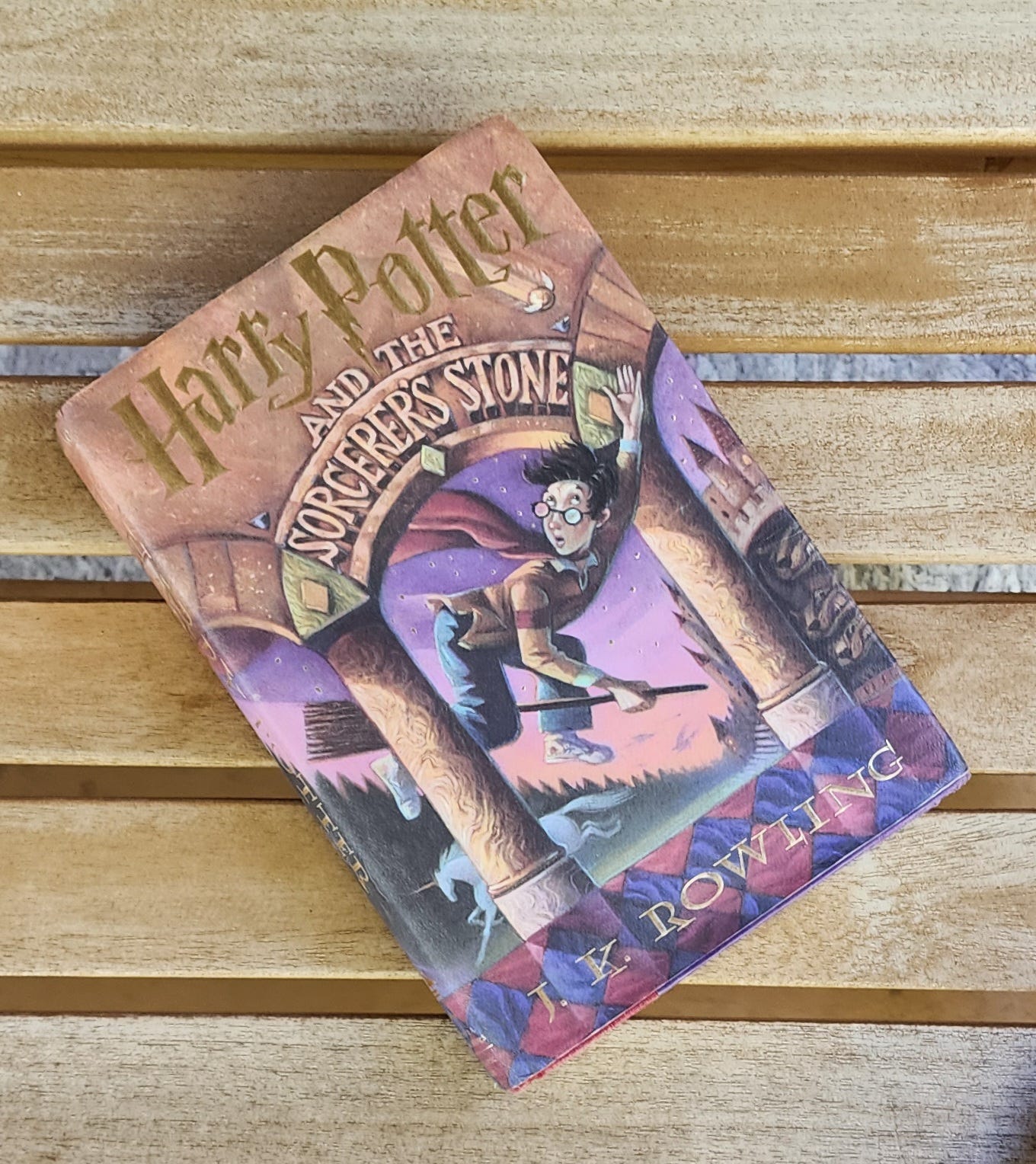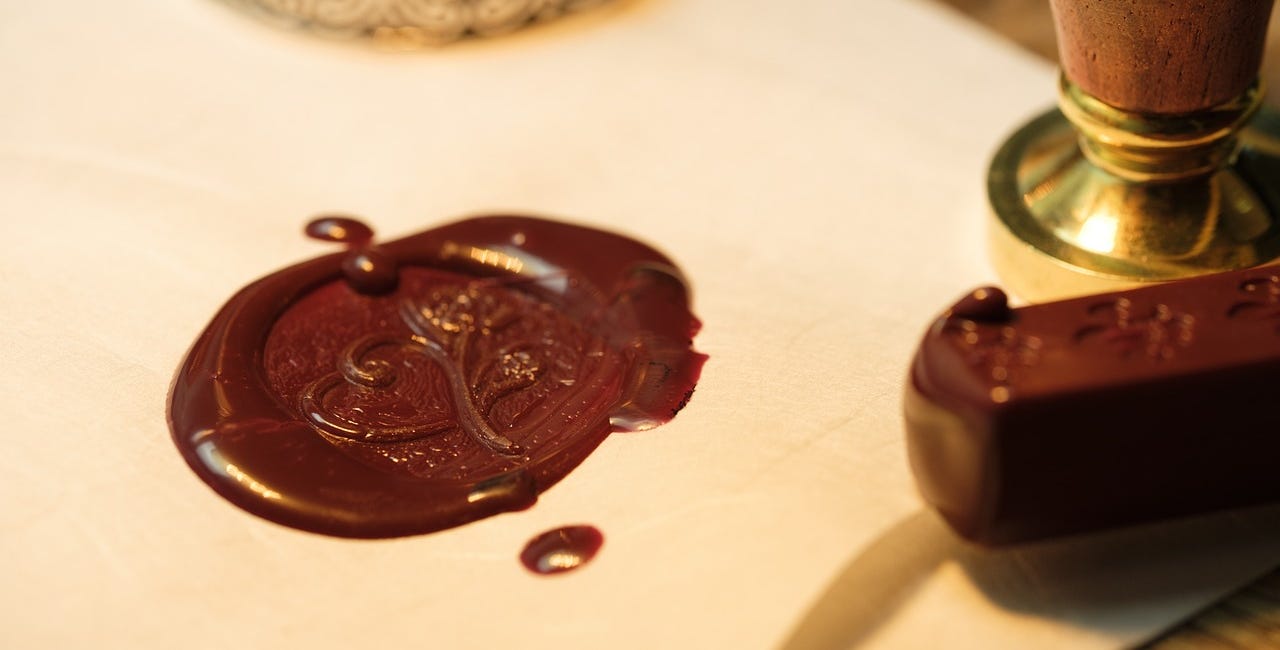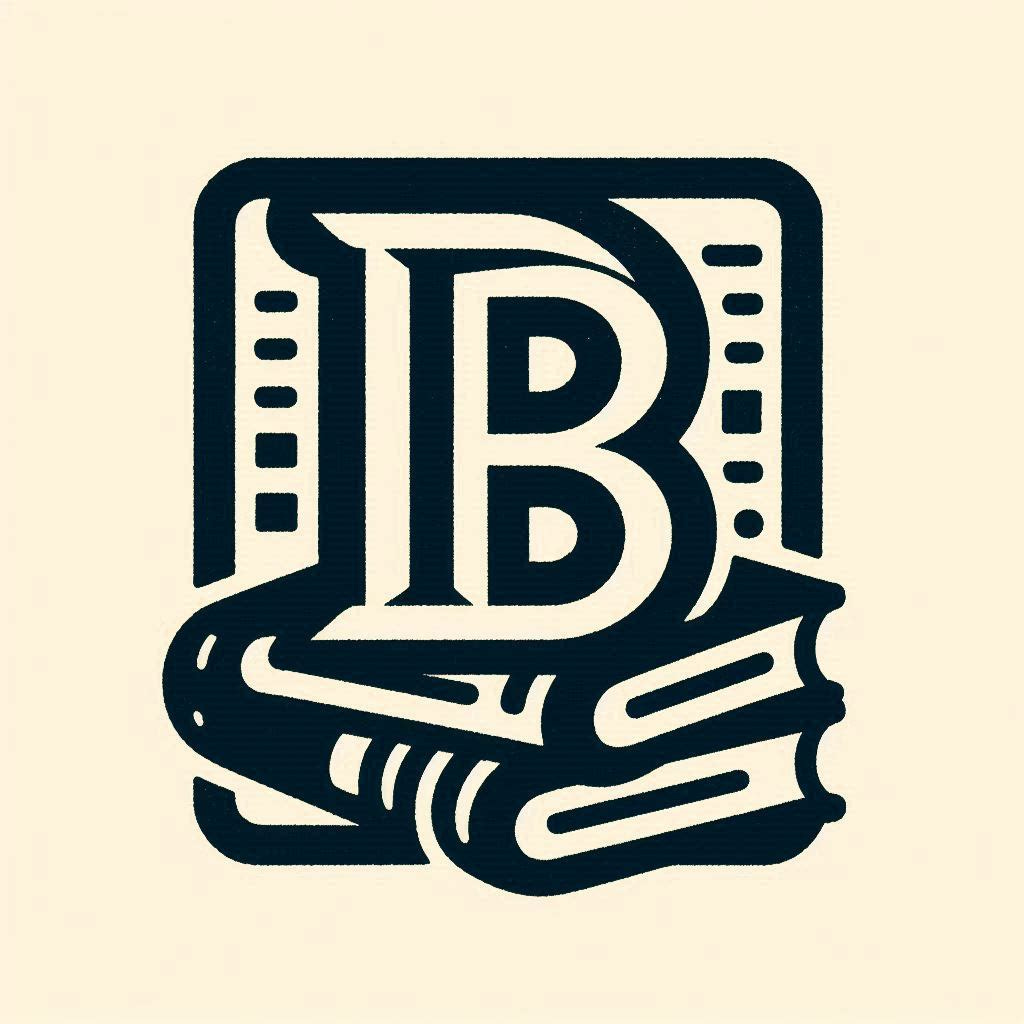Welcome back to the Harry Potter Unlocked series where we’re deep-reading one of the most popular books of all time, Harry Potter and the Sorcerer’s Stone. Today we’re covering Chapter 2, The Vanishing Glass.
If you haven’t read the previous posts in this series, you can find links to those below. The Introduction post includes the project schedule in case you would like to start reading along with us. There is still plenty of time to catch up!
Like most chapters in this book, The Vanishing Glass is pretty brief. It contains just under 3,500 words and takes ten to fifteen minutes to read through silently, even for a slow reader like myself. I timed myself on this one and clocked in at 12 minutes 45 seconds.
Unlike Chapter 1, which operates as a disguised prologue, this chapter is a thorough introduction to our main protagonist. This one sets the stage for Harry’s transformation from a downtrodden boy into the hero we’ve come to know and love.
Let’s dive in.
Dudley’s birthday and the Dursleys’ day at the zoo
Ten years have passed since we left the Dursleys’ doorstep at the end of Chapter 1. Harry is still there, living in a dark cupboard underneath the stairs. It’s Dudley’s birthday and the Dursleys will be heading to the zoo. They reluctantly bring Harry along after their babysitter, one Mrs. Figg, falls through.
In the reptile house, a large boa constrictor winks at Harry and they strike up a conversation. After pushing Harry aside to get a closer look, Dudley and his friend end up behind the glass enclosure while the snake escapes. Mr. and Mrs. Dursley blame Harry as usual, and lock him in his cupboard with no meals.
Getting to know Harry Potter via Dudley Dursley
Rowling juxtaposes the two boys in this chapter. Readers gain an understanding of the type of character that Harry is by comparing him to his rather terrible cousin, Dudley. Rowling describes Dudley’s physical appearance as pink, fat, and blond with watery eyes.
Beyond the physical descriptions though, Dudley’s character traits are illuminated by his actions. Rowling doesn’t just tell us what Dudley is like, she shows us. Dudley throws tantrums when he doesn’t get what he wants at home. He even fakes sobs to manipulate his parents. Outside of the home, he’s a bully. His favorite ‘punch-bag’ is Harry. The narrator often refers to ‘Dudley’s gang’ as if he is the leader of the bullies at school.
Rowling describes Harry’s physical appearance as well. He is small, skinny, thin-faced, and knobby-kneed with black hair, green eyes, and a lightning shaped scar on his forehead.
What makes us commiserate with Harry however, is the boring and miserable life that the Dursleys force him to live. We see that the Dursleys have no pictures of Harry in the house like they do with Dudley. Harry is forced to inhabit the dark, spider-infested cupboard under the stairs. He is bullied by his cousin. Before going to the zoo, Harry’s existence has consisted almost exclusively of three places which he hates: (1) the Dursleys’ house; (2) Mrs. Figg’s house; and (3) school.
But readers do more than feel sorry for Harry; we root for him. Why? Because of who Rowling shows us that he is. He’s empathetic, hopeful, and grateful for the little that he does receive.
He knows that “he ought to feel sorry” for Mrs. Figg even though her misfortune leads to his excitement to go to the zoo for the first time in his life. He dreams of meeting an unknown relative to take him away from the Dursleys. He’s happy with the cheapest treat from the zoo ice cream vendor even though Dudley received a better treat. Harry even shows sympathy for a snake because the snake’s enclosure was “worse than having a cupboard as a bedroom.”
Despite everything working against him, Harry has grown into a seemingly decent kid. Readers by the end of this chapter want to see Harry escape this life and see Dudley get his comeuppance; and Rowling will deliver this in the next chapter.
Four miracles tell us even more about who Harry is
The real magic of this chapter’s storytelling comes in the form of strange, miraculous events that seem to occur around Harry. It’s clear that he has no control over this power; even so, the occurrences tell us a lot about who Harry is and who he might become.
The magical occurrences in this chapter are:
After a particularly atrocious haircut from Mrs. Dursley, Harry’s hair grows back to the we he likes it overnight.
When Mrs. Dursley tries to force him into a “revolting old jumper,” it shrinks until it will only fit a puppet - thwarting Mrs. Dursley’s attempts.
Being chased by Dudley’s gang, Harry is magically transported to the roof of the school’s kitchens.
At the zoo, the glass front of the snake’s enclosure vanishes to admit Dudley and allow the snake to escape.
Reading this chapter as a kid, I never thought about why an author might choose these four instances of magic out of everything she could have imagined. Perhaps it was blind luck, but I think there was more purpose behind why these four occurrences were chosen.
The first three occurrences are all about protecting Harry from embarrassment or physical danger. As soon as Harry makes a friend (albeit a winking boa constrictor friend), his magic works to help that friend. Harry’s intrinsic abilities are directed towards protection of self and others. We see in book six that this isn’t the case with all young wizards. In fact, a young Tom Riddle uses his intrinsic abilities to hurt and torture.
These instances of magic tell us something else. Notice the progression. Growing hair and shrinking clothes are rather minor things. Teleporting oneself out of danger, talking to snakes, and vanishing (then reappearing) glass are displays of magic that are not so trivial. We get a sense of some growing power within Harry.
Why are the Dursleys so mean?
This is something that puzzled me as a kid. Why do the Dursleys act so hateful towards Harry? What’s motivating them? The way that they (mis)treat Harry is substantively different than aloof indifference. It’s actively mean; maybe even evil.
Taking a closer look at this story as an adult, the answer is rather clear in the words that Rowling uses to describe the Dursleys’ actions. Fear is motivating the Dursleys. They are afraid of what Harry might accidentally (or purposefully) be capable of. They know what happened to his parents. They know some of what was going on in the wizarding world before Voldemort disappeared.
The Dursleys are often described as worried, nervous, afraid, angry, cautious, and scared. They put Harry in the cupboard under the stairs, the place in the house where he could do the least damage. They isolate Harry, keeping him trapped in a boring life in the hopes that he won’t turn into a magic user like his parents.
Although their treatment of Harry is inexcusable, I no longer think that the Dursleys are just being evil for the sake of it. There’s something more complex and compelling about these characters.
It makes one wonder why they’re keeping Harry in the first place. I guess we’ll have to keep reading to find out.
Other interesting tidbits from this chapter
Watches keep making appearances. We saw Dumbledore’s watch in Chapter One. In this chapter, Dudley gets a gold watch for his birthday and Harry sits in his cupboard wishing he had a watch. I’m not sure what to make of this recurrence, but it has caught my eye.
We’re introduced to more minor characters in this chapter: Mrs. Figg, Aunt Marge, and Dedalus Diggle (one of the cloaked people that Harry sometimes runs into out in the world). We know that Mrs. Figg and Aunt Marge will become more important later in the series. I’m sure Rowling did not have all of this figured out yet, but it goes to show that name-dropping characters early in a story can come in useful. It gives readers a sense of immersion into a broad world which an author can deliver more fully later on.
This chapter begins just before Harry turns eleven which we know coincides with the all-important Hogwarts letter. By starting our journey with Harry here, Rowling allows us to spend the appropriate amount of time getting to know Harry’s miserable life and the things he’s lacking at this point in his life.
Harry dreams about a flying motorcycle and a flash of green light which are both events from the night of his parents’ death. Rowling makes Harry’s dreams significant by pulling from actual story events that the audience is already familiar with. This pushes us readers to take Harry’s dreams seriously later on in the series.
Conclusion
That’s a wrap on Chapter Two! In just under 3,500 words, Rowling immerses us deeper into Harry’s life and the magic that subtly (for now) seeps through his mundane world. We witness the contrast between Harry and Dudley and are poised to keep unraveling the magic of this great story as we move forward into the next chapter.
What did you think of The Vanishing Glass? What would you change about it if you were writing it? What’s your favorite part? Least favorite? Let me know.
Please like this post and subscribe if you are enjoying this series. If you’re looking for a way to support this Substack without a paid subscription, consider shopping at my online Bookshop. Linked here, you can find affiliate links for all of my favorite books (including a Harry Potter booklist). There’s also a list of spooky books to read in October!
Every time you purchase a book from the Better Books Bookshop, you not only help me out, you help out local bookstores everywhere.
Analysis of Chapter 3, The Letters from No One is out now!
Harry Potter Unlocked - Chapter 3
It’s Friday! On the Better Books Substack, that means it’s time for the next installment of the Harry Potter Unlocked series where we’re deep-reading one of the most popular books of all time, Harry Potter and the Sorcerer’s Stone.
Happy Reading!







I love your project! I really enjoy reading your analysis.
Great insight about the clocks! Just like you, I’ve read Harry Potter so many times I’ve lost count, and I never noticed that before.
I think Rowling uses clocks to highlight the differences between characters. Dumbledore’s clock with planets represents infinity and truths that ordinary people can’t access. Dudley’s clock is just an expensive gadget he demanded from his parents. Later in the series, we learn that a watch is a traditional 17th birthday gift, but Dudley’s watch had nothing to do with tradition—it was just a reflection of his unchecked ego.
And why did Harry want a watch? Because a clock gives you control, and that’s something he always lacked. Throughout the books, he often points out that his achievements weren’t really his own—they were luck or the help of others. He wants control, but he never truly has it.
That’s why The Cursed Child ties into this symbolism so well—Harry finally has the chance to take control, but he chooses not to. He’s come to terms with the fact that some things in life are simply beyond control.
This entire chapter could be named Empathy for Harry.
Even though his cousin got big ice cream, he seems happy to get lemon ice pop. He's a stoic; he is happy with what he gets. Also, reading this chapter, I don't feel he hates the Dursleys despite their abuse.
The zoo and snake scene in the movie is an improvement on the one in the book. In the book, the glass only disappears, while in the movie, Dudley is trapped in the snake's cage.